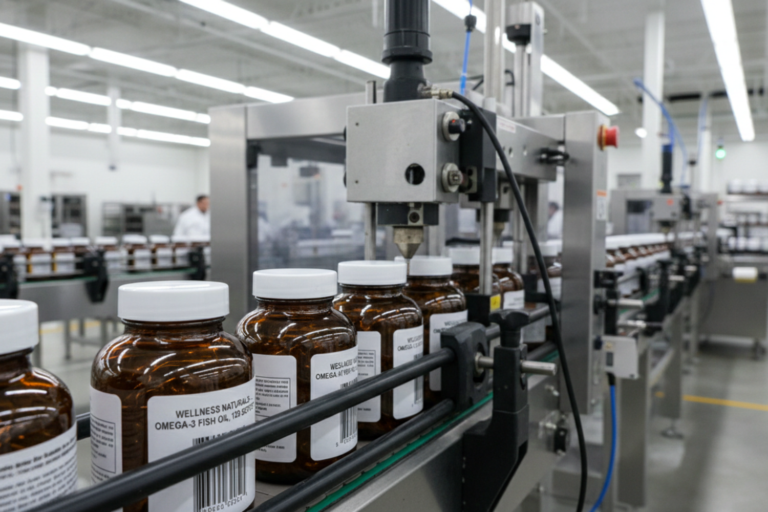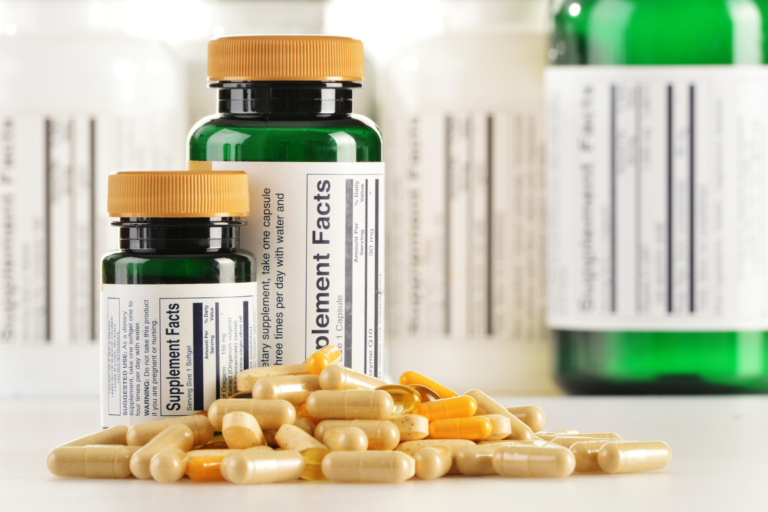NutraPak is a trusted multivitamin manufacturer specializing in high-quality nutritional supplements and vitamins. With a focus on quality, innovation, and sustainability, NutraPak delivers tailored solutions, including private labeling, custom formulations, and advanced packaging options, to meet the diverse needs of the health and wellness industry.
This blog provides an in-depth look at the multivitamin manufacturing process at NutraPak, outlining the key steps involved in producing high-quality nutritional supplements. From sourcing ingredients to quality testing and packaging, the article explores how the process aligns with industry standards to deliver reliable products.
What Defines a High-Quality Vitamin?
High-quality vitamins surpass basic supplementation to meet the highest efficacy and safety standards. These essential criteria set them apart:
- Bioavailability: Nutrients should be formulated to support effective absorption by the body.
- Stability: Vitamins should maintain their potency and effectiveness throughout their shelf life.
- Purity: Products must be free from harmful contaminants or unnecessary additives to ensure safety and reliability.
Consumer Expectations
Modern consumers expect their supplements to align with health-conscious values. Clean-label formulations free from common allergens like gluten, soy, and dairy have become non-negotiable for many buyers.
Natural and organic ingredients are also in high demand, and there is a growing preference for products sourced from sustainable, high-quality raw materials. These trends drive innovation in the natural products industry and create opportunities for brands to stand out.
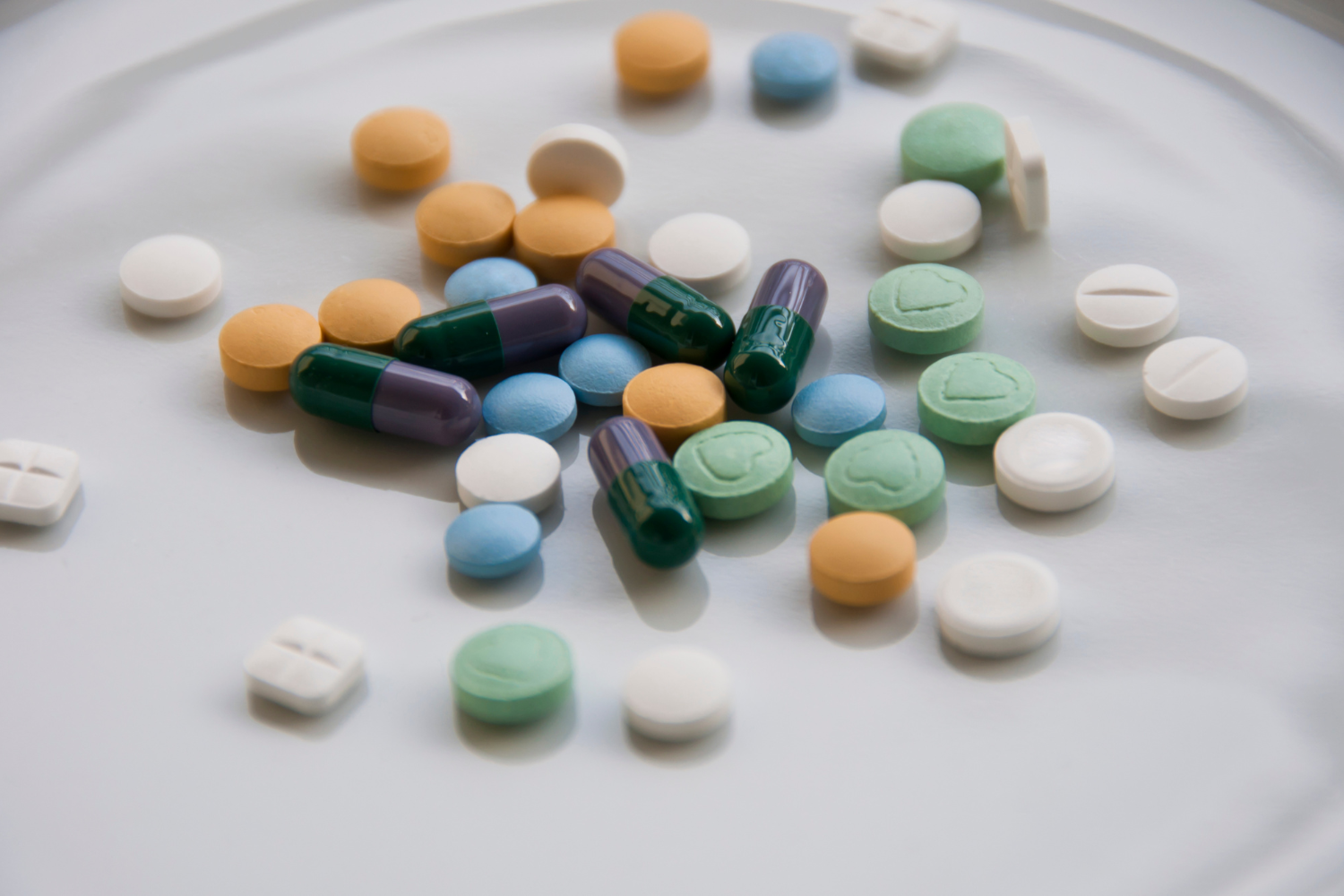
Steps in the Vitamin Manufacturing Process
Manufacturing multivitamins requires a precise, multi-step approach to meet consumer expectations and regulatory standards. Companies like NutraPak follow strict processes, from sourcing quality ingredients to rigorous testing, ensuring supplements maintain high standards of quality and efficacy.
Step 1: Sourcing High-Quality Ingredients
Choosing trusted suppliers is the foundation of any successful vitamin manufacturing project. Raw materials must be free from contaminants and meet stringent safety and quality standards in accordance with the industry guidelines. This step involves collaborating with suppliers that adhere to Good Manufacturing Practices (GMP) and providing detailed ingredient quality documentation.
Transparency in ingredient sourcing is essential to meet both regulatory standards and consumer demands. NutraPak USA advantage emphasizes material testing and certification to ensure the ingredients used in private labeling contract packaging meet purity, safety, and quality benchmarks.
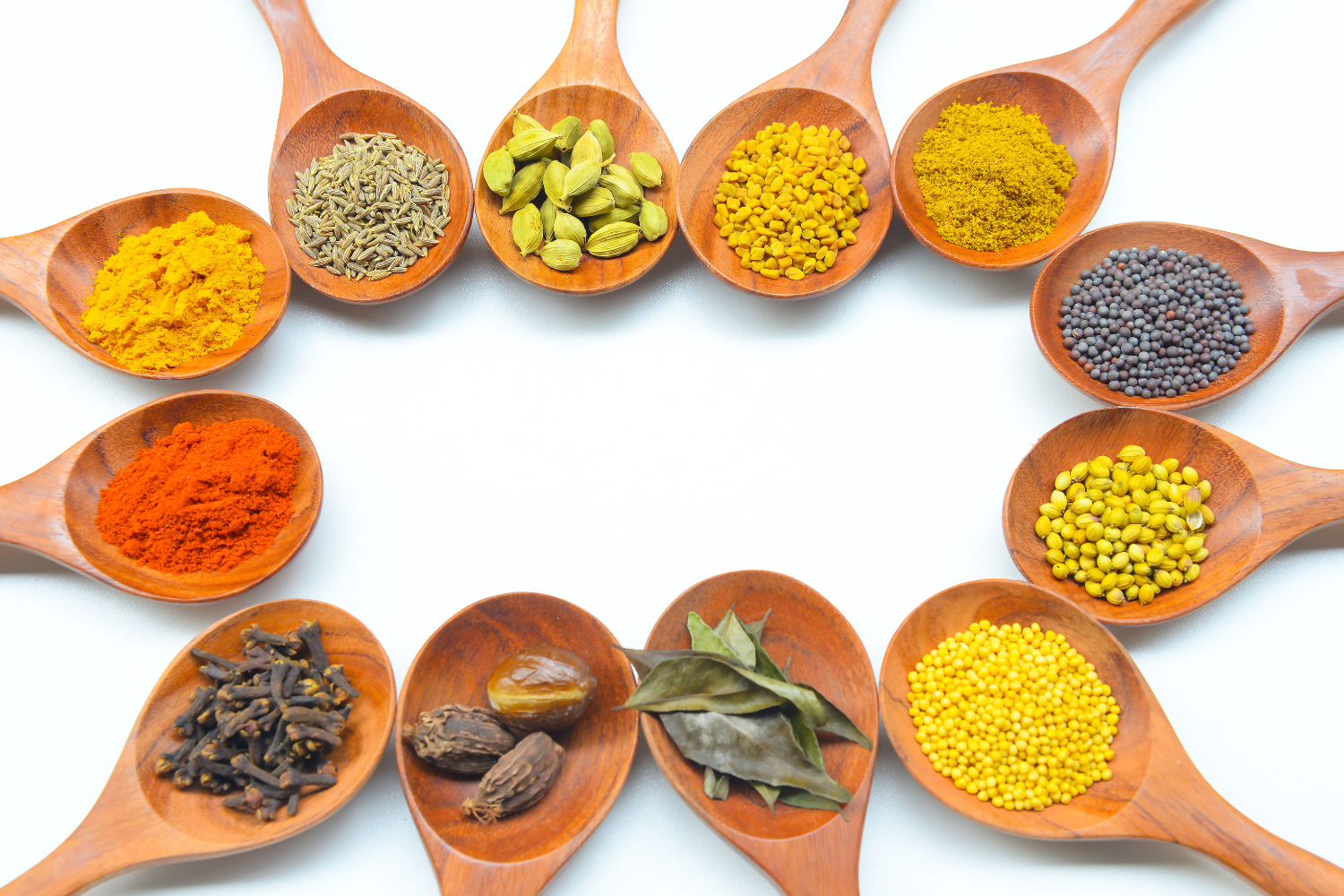
Step 2: Custom Formulation
Custom formulations allow manufacturers to meet the growing demand for specialized products. Tailored formulations can target specific market segments, such as multivitamins for children, natural products for holistic health, or quality private label softgels gelcaps for sports nutrition. This step prioritizes precision to develop unique, effective blends.
Creating these formulations involves balancing ingredient combinations for maximum efficacy and minimal side effects. Nutritional supplement manufacturers like NutraPak focus on designing innovative formulations that address unique health concerns while maintaining extremely competitive pricing.

Step 3: Manufacturing and Production
NutraPak’s advanced facilities utilize cutting-edge technology to maintain high standards in vitamin manufacturing services. Advanced technologies and refined processes ensure ingredient potency and product consistency throughout production.
- Micro-encapsulation: Preserves nutrient stability and enhances bioavailability.
- Low-heat processing: Prevents degradation of sensitive nutrients during manufacturing.
- Precision blending: Ensures even distribution of active ingredients in caplets, tablets, and capsules.
- Flexible packaging solutions: Options include liquid packaging, plastic bottles, and blister packs tailored to specific project needs.
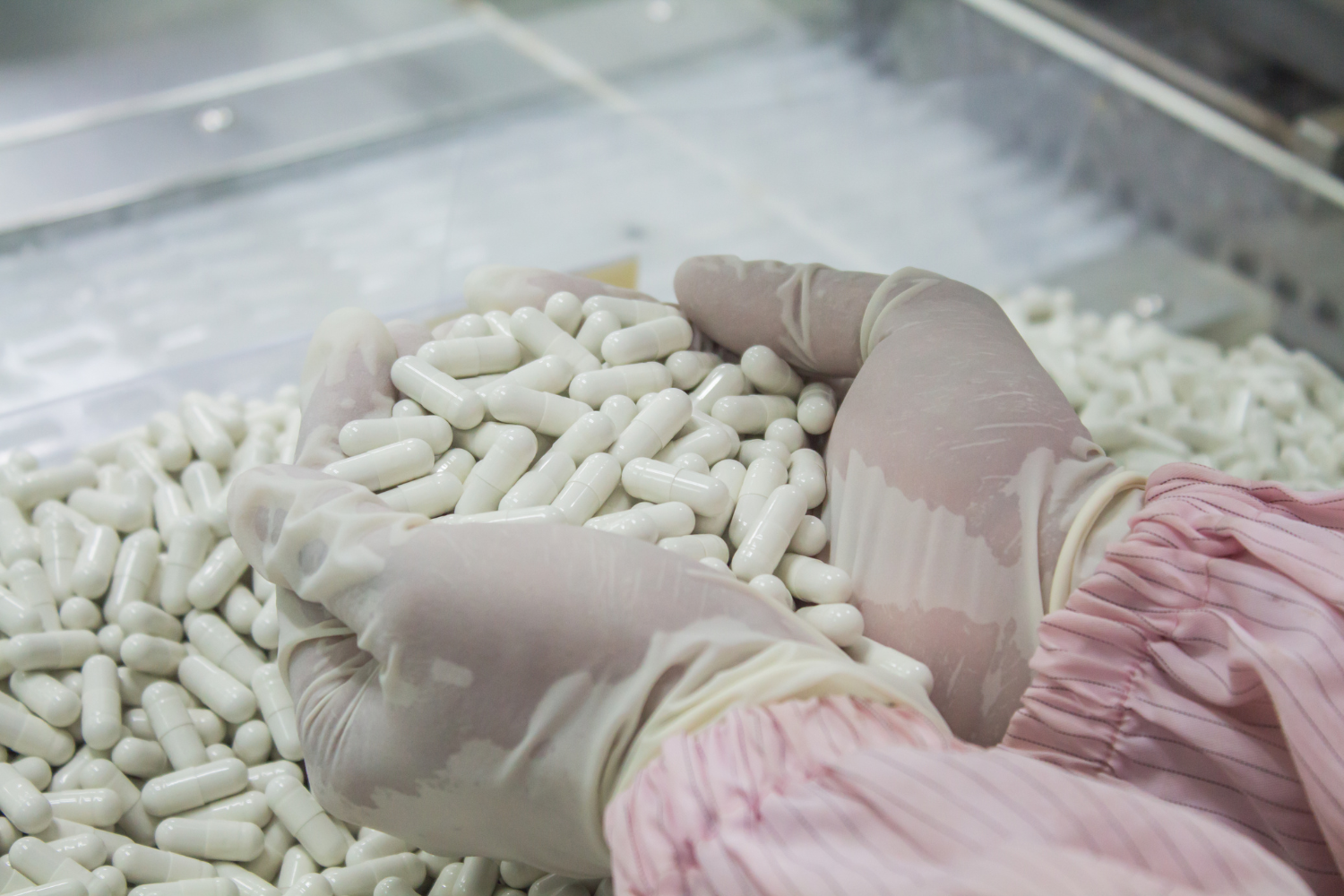
Step 4: Quality Assurance and Testing
Quality assurance ensures that every product delivered meets strict safety and efficacy standards. Raw material testing at the start of production identifies contaminants or inconsistencies, while in-process testing ensures the supplement’s details meet established specifications.
Adherence to GMP and FDA standards is a priority at NutraPak USA. Each manufacturing phase undergoes thorough quality assurance checks to meet high industry standards and consumer expectations, as well as most other major retailers.

Customization Options for Vitamins
Customizing vitamins allows brands to create products tailored to specific consumer preferences. This flexibility helps businesses stand out in a competitive market by offering unique solutions.
Format Choices
Choosing the proper format is essential to meeting consumer needs. Each option is designed for convenience and effectiveness:
- Tablets: A cost-effective and easy-to-swallow option for daily supplementation.
- Capsules: Ideal for delivering powdered ingredients in a digestible form.
- Softgels: Preferred for oils and fat-soluble nutrients, providing quality softgels with high bioavailability.
- Powders: Great for larger doses of nutrients, often used in sports nutrition or drink mixes.
Additive-Free and Specialty Options
Specialty formulations cater to health-conscious consumers who prioritize clean ingredients. These products address dietary restrictions and lifestyle choices:
- Sugar-free: Designed for individuals reducing added sugar intake.
- Gluten-free: Essential for individuals with gluten intolerance or celiac disease.
- Vegan formulations: Made without animal-derived ingredients, ideal for the plant-based market.
Packaging and Branding
Eco-friendly packaging and custom labeling solutions are critical components of branding and sustainability. Liquid packaging, plastic bottles, blister packs, caps, pumps, and seals provide flexibility for different product types. NutraPak supports contact packaging projects with sustainable labeling contract packaging materials sourcing, helping brands meet consumer demands for environmentally responsible products.

Common Challenges in Vitamin Manufacturing
Producing high-quality vitamins requires overcoming challenges impacting product efficacy and safety. Addressing these issues ensures consistent results and consumer satisfaction.
Ingredient Compatibility
Combining multiple ingredients can create interactions that reduce potency or effectiveness. Nutritional supplement manufacturers must carefully analyze ingredient properties to avoid conflicts. For example, certain minerals may inhibit the absorption of vitamins, requiring precise formulation to maintain balance and effectiveness.
Ensuring Stability
Stability is vital to ensure vitamins maintain their potency throughout their shelf life. Techniques to achieve this include:
- Protective coatings: Shield sensitive nutrients from moisture and air.
- Low-heat processing: Preserves bioavailability and reduces nutrient degradation.
- Advanced packaging: Options like blister packs and plastic bottles minimize exposure to environmental factors.
Regulatory Compliance
Navigating complex regulations is crucial for meeting standards in both domestic and international markets. Manufacturers must adhere to guidelines set by agencies such as the FDA for the United States and ensure compliance with GMP standards. Partnering with experienced facilities like NutraPak USA helps brands meet regulatory requirements while maintaining the supplement’s finest details.

Popular Types of Vitamins Produced
Vitamin manufacturing offers diverse products to meet a variety of consumer health needs. From general wellness to targeted formulations, there is a solution for every demographic.
Multivitamins
Multivitamins are tailored to meet the needs of specific groups, such as children, seniors, or athletes. These comprehensive blends often include essential vitamins, minerals, and other nutrients that address age or lifestyle-related deficiencies, making them a staple in the industry.
Single Nutrient Vitamins
Single nutrient vitamins like Vitamin D3, Vitamin B12, and Vitamin C are highly sought after for their targeted benefits. These products cater to individuals with specific deficiencies or health concerns, offering a simple yet effective way to support overall wellness.
Specialized Formulations
Specialized vitamins focus on specific health goals or life stages. Examples include prenatal vitamins developed to meet the nutritional needs of expecting mothers and immune support blends crafted to complement overall wellness. These custom solutions are available in formats like softgels, gelcaps, caplets, tablets, providing options tailored to specific needs.

Frequently Asked Questions
What makes NutraPak USA stand out as a nutritional supplement manufacturer?
NutraPak USA offers quality in custom formulations, raw material testing, and contract packaging tailored to meet diverse market demands.
How does NutraPak ensure ingredient quality and safety?
NutraPak emphasizes material testing and compliance with FDA and GMP standards to maintain the supplement’s finest details and unmatched purity.
What packaging options are available for vitamins?
NutraPak provides flexible solutions, including plastic bottles, blister packs, and sustainable packaging options for eco-conscious brands.
Are NutraPak’s vitamin formulations customizable?
Yes, NutraPak specializes in custom formulations, offering tailored options like sugar-free, gluten-free, vegan, and label softgels gelcaps caplets.
How does NutraPak support regulatory compliance for vitamin products?
NutraPak ensures adherence to U.S. regulations and supports brands in navigating additional requirements for international markets.
Ensuring Unparalleled Quality in Vitamin Manufacturing
High-quality vitamins require a seamless blend of premium ingredients, precise formulations, and rigorous quality control and assurance. NutraPak exemplifies unparalleled excellence in vitamin manufacturing, providing packaging, private labeling, and advanced testing to meet regulatory and consumer expectations. Partnering with NutraPak ensures your brand delivers safe, effective, and competitive products in the nutraceutical and supplement industry.
References
- U.S. Food and Drug Administration. (2005). Dietary Supplement Labeling Guide. https://www.fda.gov/food/dietary-supplements-guidance-documents-regulatory-information/dietary-supplement-labeling-guide
- U.S. Food and Drug Administration. (2017). Guidance for Industry: Considerations Regarding Substances Added to Foods, Including Beverages and Dietary Supplements. https://www.fda.gov/regulatory-information/search-fda-guidance-documents/guidance-industry-considerations-regarding-substances-added-foods-including-beverages-and-dietary
- U.S. Food and Drug Administration. (2018). Guidance for Industry: Distinguishing Liquid Dietary Supplements from Beverages. https://www.fda.gov/regulatory-information/search-fda-guidance-documents/guidance-industry-distinguishing-liquid-dietary-supplements-beverages
- U.S. Food and Drug Administration. (2018). Guidance for Industry: Evidence-Based Review System for the Scientific Evaluation of Health Claims. https://www.fda.gov/regulatory-information/search-fda-guidance-documents/guidance-industry-evidence-based-review-system-scientific-evaluation-health-claims
- U.S. Food and Drug Administration. (2018). Guidance for Industry: Highly Concentrated Caffeine in Dietary Supplements. https://www.fda.gov/regulatory-information/search-fda-guidance-documents/guidance-industry-highly-concentrated-caffeine-dietary-supplements
- U.S. Food and Drug Administration. (2018). Guidance for Industry: Substantiation for Dietary Supplement Claims Made Under Section 403(r) (6) of the Federal Food, Drug, and Cosmetic Act. https://www.fda.gov/regulatory-information/search-fda-guidance-documents/guidance-industry-substantiation-dietary-supplement-claims-made-under-section-403r-6-federal-food

